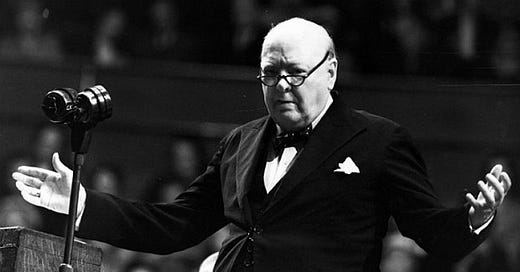Quote
“I slept, and dreamed that life was Beauty;
I woke, and found that life was Duty.
Was thy dream then a shadowy lie?
Toil on, poor heart, unceasingly;
And thou shalt find thy dream to be
A truth and noonday light to thee.”
-Ellen Sturgis Hooper I Slept, and Dreamed that Life was Beauty
Du'ty. n.s. [from due.]
/ˈdo͞odē/
Definitions
Merriam-Webster, contemporary: 1. Conduct due to parents and superiors; respect. 2. obligatory tasks, conduct, service or functions that arise from one’s position in life or in a group. 3. a moral or legal obligation. 4. a tax; especially on imports.
Samuel Johnson’s Dictionary (1755) 1. That to which a man is by any natural or legal obligation bound. 2. Acts of forbearances required by religion or morality. 3. Obedience or submission due to parents, governors, or superiors; loyalty; piety to parents.
MakeGoodHappen with Randy Lovejoy: a way to align our actions with our values in our everyday lives.
Etymology
Comes into English from French; late 14c, duete, “obligatory service, that which ought to be done,” and “the force of that which is morally right,” from Old French deu “due, owed,” so “proper, just. ” Used for tax, particularly on imports, from the late 14th century as well. Not used in the military sense of required service until the 1580s. Overall use of the word has declined in English since the 1800s.
How It Makesgoodhappen:
Having a sense of duty energizes our participation in the world. Great leaders have recognized this, galvanizing their people in the face of great danger, by reminding them of their duty. Winston Churchill for example, in the face of the Nazi threat, said to the House of Commons, “Let us therefore brace ourselves to our duties, and so bear ourselves that, if the British Empire and its Commonwealth last for a thousand years, men will still say: ‘This was their finest hour.’” Eighty-one years earlier, Abraham Lincoln had emphasized duty in a speech that probably led to his election as the 16th President of the United States. Calling others to join him in standing against the expansion of slavery into the Western territories of the United States Lincoln said, “Let us have faith that right makes might, and in that faith let us dare to do our duty.” Duty is the concrete expression today of our hopes and dreams for the future.
What did you spend your time, talent, and treasure on today? Were your activities aligned with your vision of life? If you’re like me, it depends on the day. Sometimes, my actions are aligned with my goals. At the end of the day, I can look back and see that I have done my duty according to my vision of the way life should be. But there are still too many evenings when my reflections end in frustration. I have not been who I needed to be. Doing our duty aligns our activities with our hopes and gives us a sense that we are using our lives to makegoodhappen.
The first thing we have to do to find that alignment is to clarify the purpose of our life. When we clarify what we are living for our duty begins to emerge. For example, some of us believe life is about possessions. The more you have the better off you are. For others, it is about power or about knowledge. In those cases, your duty is to get more power or to get more knowledge. But Christianity offers a different purpose and thus a different duty.
The first thing we have to review is the story which gives us our purpose. A very simple sketch of the Christian story looks something like this:
God created all things and they were very good. There was a symmetry of relationship which made everything beautiful. (Genesis 1)
Humans broke that symmetry and things began to unravel. That is why the world is as it is today. (Genesis 2-11)
God took action in a promise to Abraham that will, in time, heal the world. (Genesis 12)
Jesus is the climax of that promise. His life, death, and resurrection begin the spread of that healing, in earnest, across the globe.
The promise will be fulfilled and the healing will be complete when Jesus returns. He will restore the symmetry of all things by bringing the just and peaceful world we long for.
Aligning our daily lives with this story of the promise-fulfilling begins by understanding that we are living between the climax and the end of the story. It is in that context that Jesus focuses our duty on two things. Here’s how he described our daily duty:
‘‘Love the Lord your God with all your heart and with all your soul and with all your mind.” This is the first and greatest commandment. And the second is like it: “Love your neighbor as yourself.” All the Law and the Prophets hang on these two commandments.”
The great adventure of the Christian life is to work out what this love actually looks like in your life, in your relationships, and in your community. This requires innovation. There is no template that you can cut and paste onto your life. The life you lead is like no one else’s. Your journey is a creative process in your rhythm of life requiring your time, talent, and treasure to figure out how to love God and your neighbor each day. This is your duty.
But you are not alone. You can learn a lot from others, past and present, who are also experimenting with loving God and neighbor in their own lives. This Substack channel is committed to providing you with just the kind of inspiration you need so that you can end each day with the knowledge that you have done your duty.
How are you doing on the two key duties of the Christian?
What is the next step that you need to take in your journey to go deeper into the two duties Jesus asks of us?





